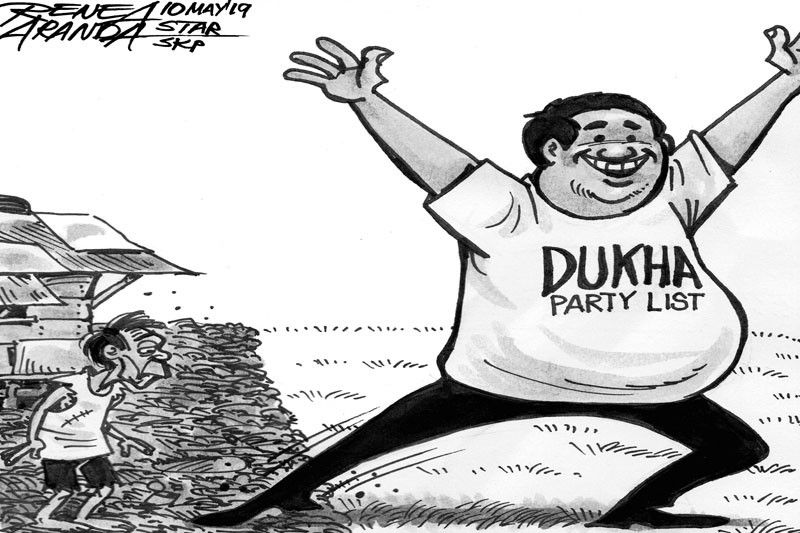EDITORIAL - Mocking the marginalized

The system has become a mockery of the intent in the Constitution. Yet thanks to the Supreme Court, the party-list system is not only surviving but thriving, with party-list representation increasing as every major political party, religious group and moneyed sector finds creative ways of entering Congress through the back door.
Poll watchdog Kontra Daya says it has identified over 20 organizations seeking a party-list seat whose advocacies are vague or questionable, or whose nominees belong to political dynasties or represent big business interests.
Party-list congressmen get the same pay, powers and perks of regular members of the House of Representatives. They get the same office and staff allocations, bloating the maintenance and operating expenses of the chamber. Even if they don’t have congressional representation, their advocacies can in fact be pursued in the numerous House committees.
Taxpayers can save billions if the party-list system is abolished. With the system still firmly entrenched in the upcoming midterm elections, however, the next best thing is to prevent the victory of any group that is pretending to represent a marginalized sector, with nominees who are anything but marginalized.
Information and communication technology has made it easier to identify these groups and to learn about their nominees. Voters who are interested in perpetuating the party-list system must be as discerning in picking their marginalized representation as in choosing their candidates for the other posts at stake. The country already has enough incompetent and venal elective officials. The party-list system should not aggravate the problem.
- Latest
- Trending




























